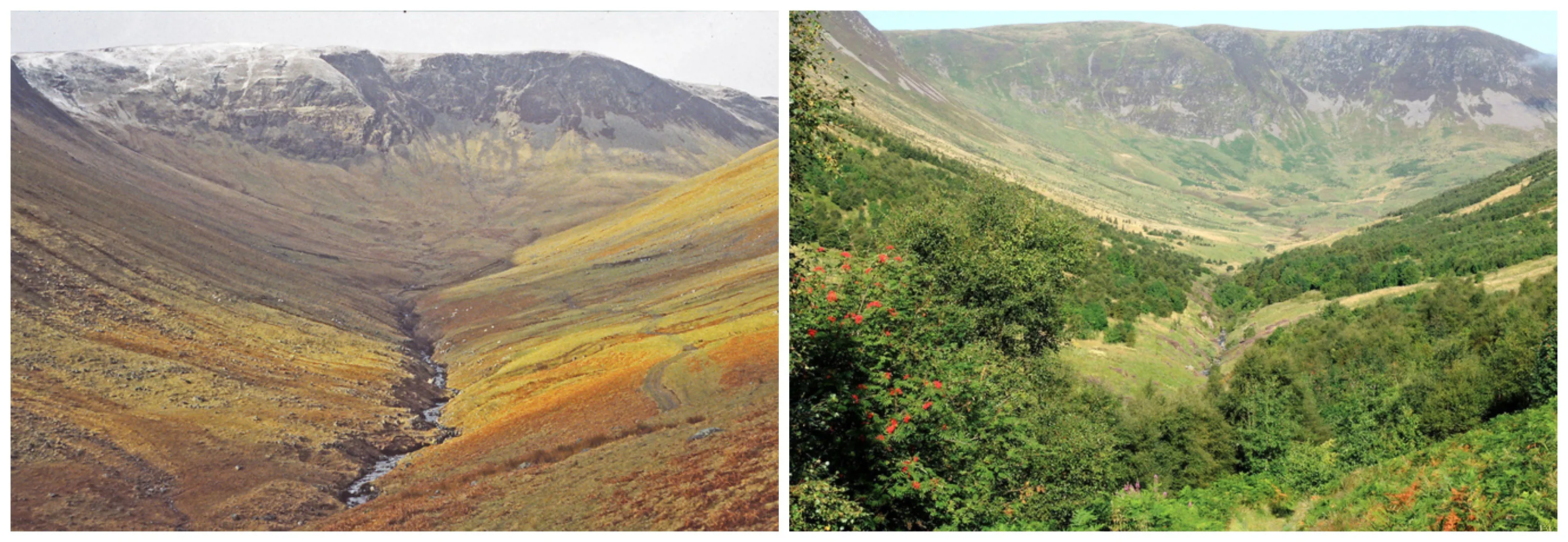“Traditional conservation practices on their own are not enough to achieve significant wildlife recovery in Britain.”
Director of Rewilding Britain, Professor Alastair Driver, stopped by First Mile HQ to share the fantastic work they’re doing to improve biodiversity through the large-scale restoration of ecosystems across the UK.
He explained that, throughout the centuries, every square metre in the UK has been managed by humans one way or another, turning the nation into a giant garden. Now even locations that appear ‘natural and wild’ are far from what they once were. And while these landscapes might look clean, tidy and even beautiful, they are not necessarily rich in biodiversity and benefitting both nature and communities alike.
“Multi-coloured and multi-textured: that’s how wild should look like.”
Once the ecosystem has been disrupted, wildlife such as birds, insects and plant species diminish. All too often, the result is a barren, monocoloured grassland devoid of trees, shrubs, native animals and any kind of texture.

Carrifran Valley in the Scottish Borders, part of the Borders Forest Trust Rewilding initiative. These images show how bare hills can transform into flourishing woodland of colour and rich bird song when rewilding is facilitated. Photos by John Savory/Borders Forest Trust
However, contrary to popular belief, rewilding doesn’t mean simply abandoning the land. Much work goes into analysing the area to decide on the best approach, followed by years of careful management and the monitored re-introduction of species. For example, some previously farmed lands will need to remove underground draining systems, whilst others may require the initial plantation of indigenous tree species to kickstart the rewilding process. And further down the line, some animal species can be reintroduced if it’s deemed to benefit the local environment and community.
“We need a large-scale restoration of ecosystems to the point where nature is allowed to take care of itself.”
It is worth reiterating the point that rewilding encourages a balance between people and the rest of nature where each can thrive. Responsible rewilding brings long-term economic benefits and provides opportunities for communities to diversify and create nature-based economies; for living systems to provide the ecological functions on which we all depend; and for people to re-connect with wild nature.
And as Professor Driver pointed out, even if the land goes back to being farmed in the future, the soil will strongly benefit from the years it wasn’t exploited, ultimately making it better for crops.
With planning, time and investment, Rewilding Britain can turn the nation’s ‘giant gardens’ into thriving landscapes with multiple benefits; better soil and water quality, increased pollination and biodiversity, and reduced flood risk throughout the UK. Better for nature and better for humans.
“It’s going to take decades”, says Professor Driver, “but at least we can start to move in the right direction and future generations can decide on what comes next.”

Rewilding Britain is First Mile’s staff charity of choice for 2019, and it was hugely inspiring to learn more about their work, as well as see some examples of their achievements so far and ongoing projects.
Top photo by Ben Porter



